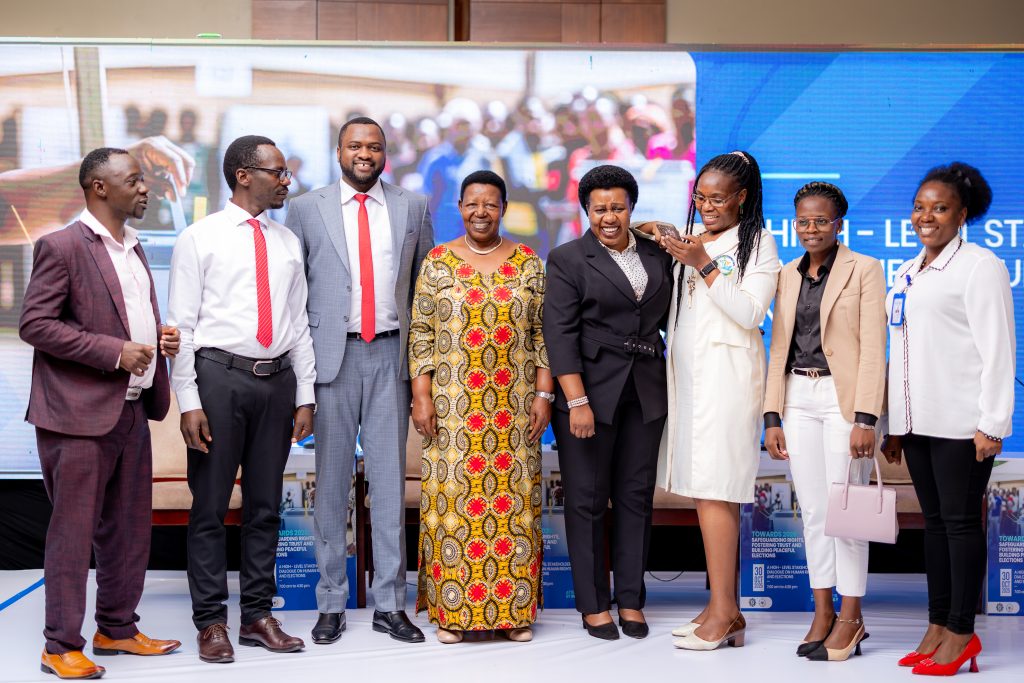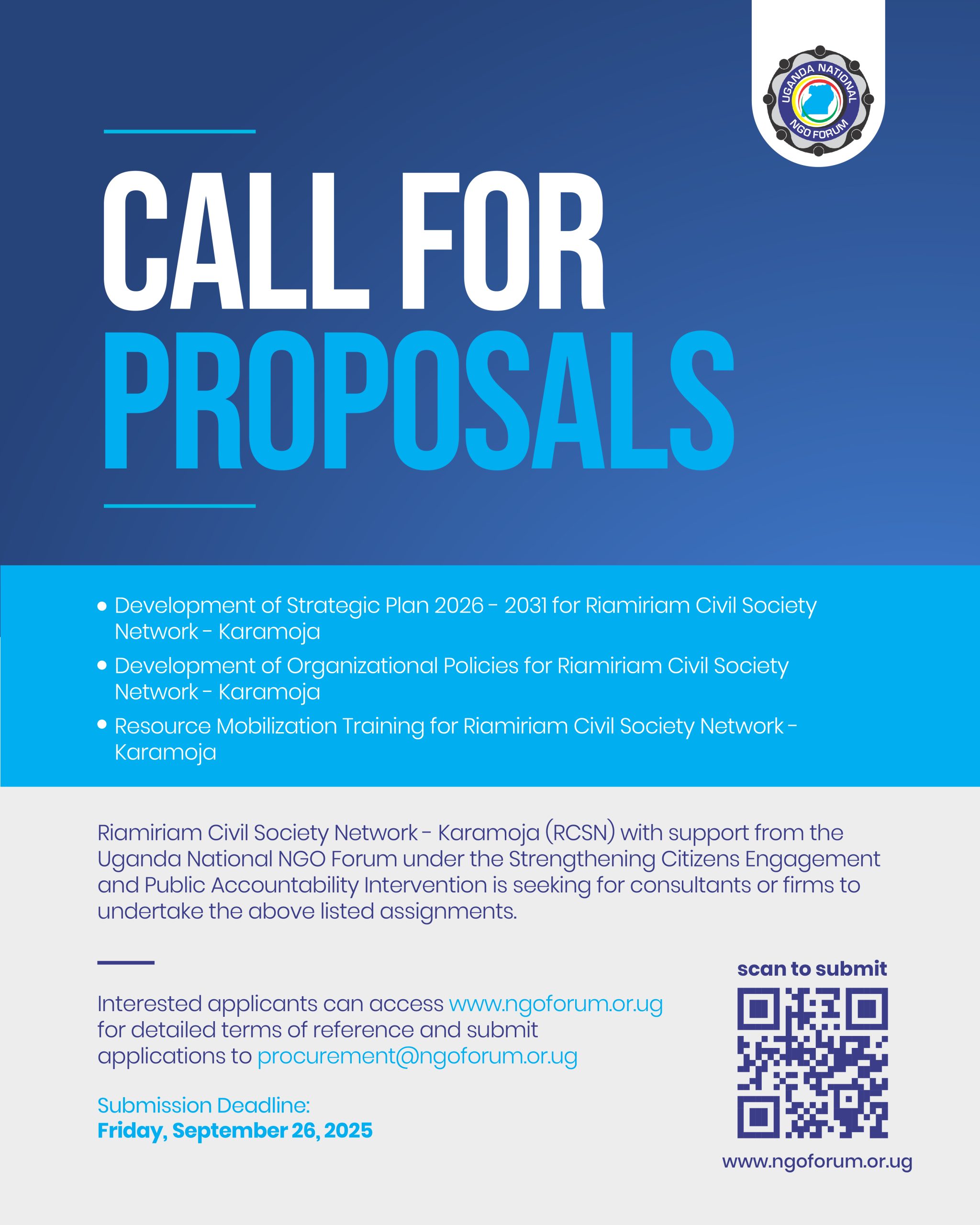
Safeguarding Rights and Building Trust Ahead of Uganda’s 2026 Elections
On October 30, 2025, leaders from across sectors, government, security, civil society, politicians and political party representatives, and development partners gathered at the Sheraton Hotel Kampala for the High-Level Stakeholders Dialogue on Human Rights and Elections under the theme “Towards 2026; Safeguarding Rights, Fostering Trust, and Building Peaceful Elections.” Convened by the Uganda National NGO Forum in partnership with the Uganda Human Rights Commission. All united by a shared vision: ensuring that the 2026 elections uphold the dignity, equality, and rights of every Ugandan.
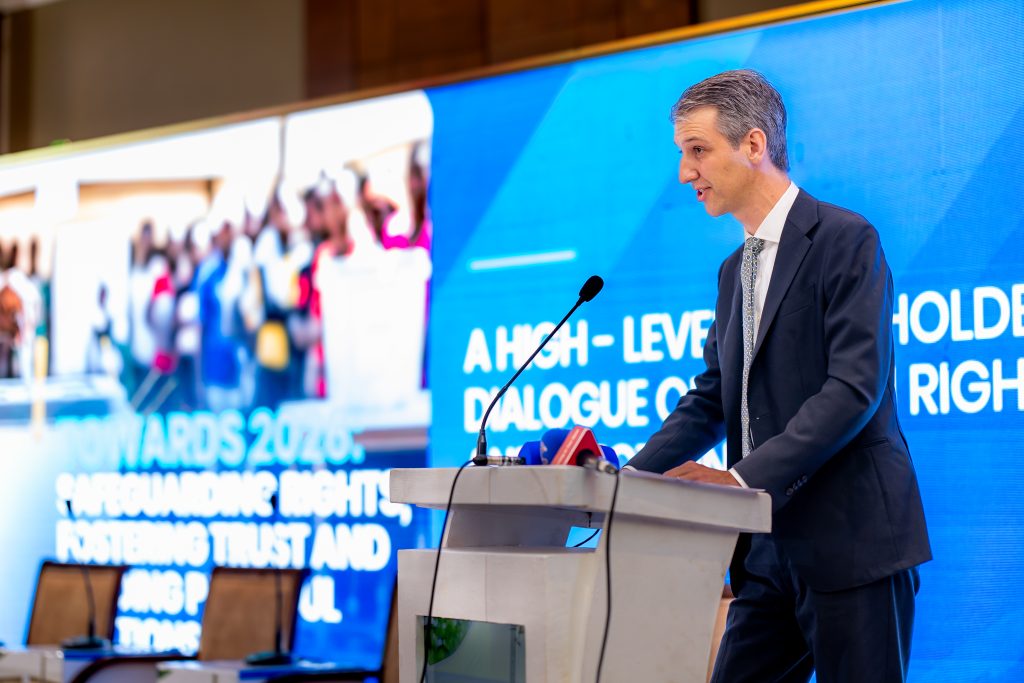
The opening remarks set the tone for a reflective yet hopeful conversation. Hon. Mariam Wangadya, Chairperson of the Uganda Human Rights Commission, reminded participants that protection of human rights is not a seasonal commitment but the heartbeat of every democratic society. “An election where every Ugandan feels seen and heard is already a victory,” she said, urging stakeholders to choose responsibility over recklessness. Representing development partners, Mr. Odde De Jong, speaking on behalf of H.E. Frederieke Quispel, the Ambassador of the Kingdom of the Netherlands to Uganda, emphasized that democracy thrives when citizens believe in their collective voice. “Every Ugandan, regardless of political affiliation, has a role in shaping the nation’s future. Media freedom is a democratic necessity,” he affirmed.
For Dr. Moses Isooba, Executive Director of the Uganda National NGO Forum, this dialogue was a reminder that democracy is a daily practice, not an event. “Every Ugandan has an equal stake in the nation’s future. Let us not just talk of human rights but live them,” he urged. His words set the stage for a day of honest conversation about the state of Uganda’s democracy, the pressures shaping it, and the possibilities of reclaiming it for the common good.
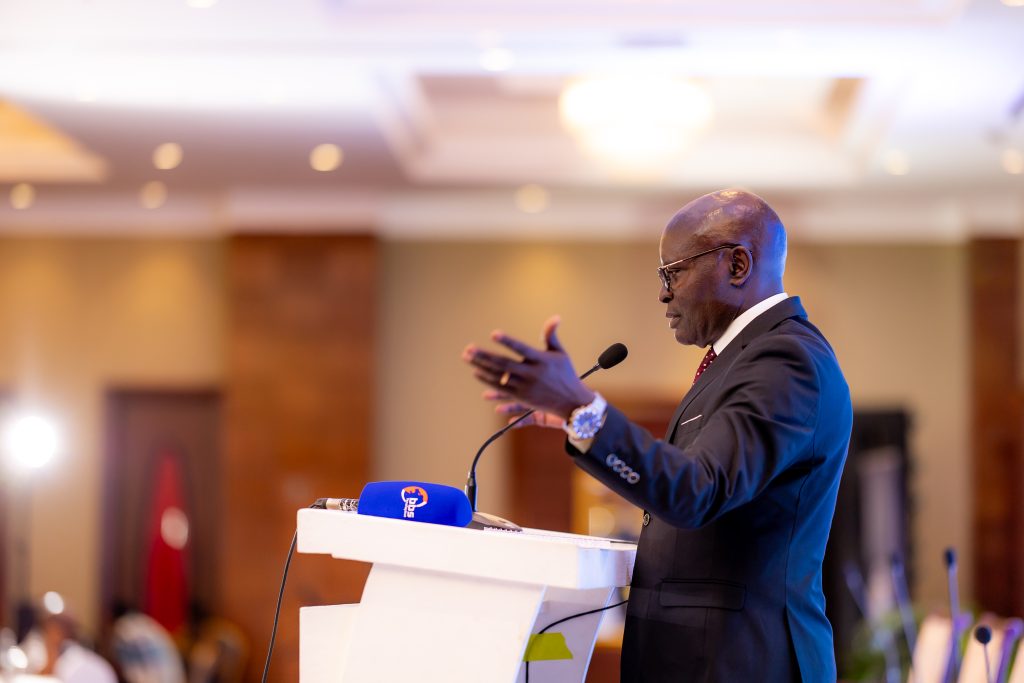
Delivering the keynote address, Justice Simon Byabakama, Chairperson of the Electoral Commission, spoke with striking candor about the monetization of politics. “Our democracy has been captured by money banks, almost shutting out those critical voices without the backing of money. We must rescue it from obscene monetization and rampant vote buying,” he cautioned. He called on young people to resist manipulation and reclaim their agency, warning against being used as tools of division. “Despite challenges like unemployment and lack of skills, the youth should not allow themselves to be turned into weapons by opportunists and self-seekers,” he added. Justice Byabakama also reflected on the evolving digital landscape, noting that social media has immense potential to strengthen civic engagement if used responsibly. “Social media can be a powerful tool if used responsibly. It should help promote peaceful and fair elections, not fuel division,” he said, reaffirming the Commission’s commitment to transparency, fairness, and peace in the 2026 elections.
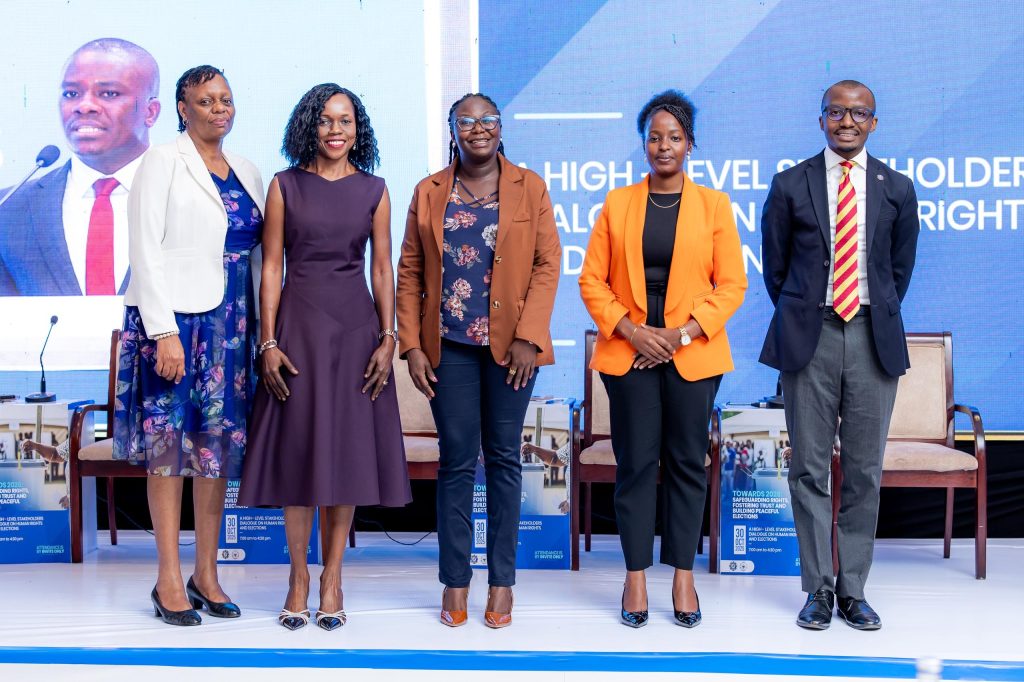
The first panel of the day explored the relationship between human rights, elections, and the media, the power of truth, and responsible reporting. Journalist Raymond Mujuni offered a timely reflection on information integrity: “We’re seeing presidential candidates moving with teams of bloggers… It’s becoming harder to tell what’s true and what’s not. Journalists now play a crucial role in checking information circulating in the ecosystem.”
Ms. Hope Bagota, Senior Human Rights Officer at UHRC, reinforced that elections and human rights are inseparable and “elections are the cornerstone of democracy, and for a country to have free, fair, and transparent elections, human rights must be respected and promoted.”
From the Women’s Democracy Network, Ms. Perry Aritua called for gender-responsive reforms and stronger political will to lower the cost of politics. “Political parties have neglected their role in shaping the political terrain, leaving civil society to fill the gap,” she said, stressing that inclusion must go beyond rhetoric if democracy is to be meaningful.
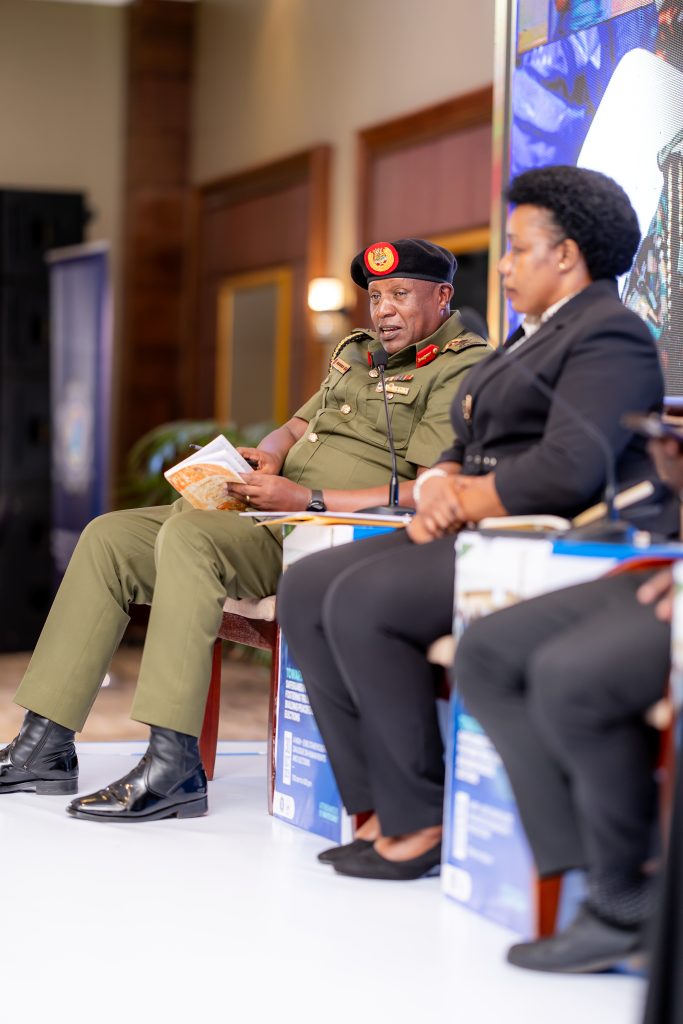
The second panel turned the spotlight to security, trust, and institutional legitimacy. Representing the Chief of Joint Staff, Major General Henry Matsiko reaffirmed the UPDF’s constitutional duty to protect both security and democracy. “The Constitution requires us to build trust among the people and ensure election security through collaboration and civic sensitization,” he noted.
Civil society leader Dr. Sarah Bireete, Executive Director of the Center for Constitutional Governance, challenged institutions to prioritize accountability. “Security must serve democracy, not dominate it,” she emphasized. Veteran journalist Derrick Wandera highlighted the importance of protecting media freedom: “The media is the mirror of democracy. Grievances against journalists should be handled lawfully, not through intimidation or censorship.”
From academia, Dr. Nansozi Muwanga, Executive Director of the Julius Nyerere Leadership Center, reflected that Uganda’s challenge lies not in holding elections but in restoring trust. “Fairness underwrites peace. The legitimacy of any election depends on how inclusive and transparent it is,” she said, a statement that resonated deeply with the room.
Representing the Inspector General of Police, Commissioner Dinah Kyasiimire echoed the Uganda Police Force’s commitment to a rights-based approach to security ahead of the polls. “Human rights are ingrained in police training, and all policing operations must be according to the law,” she said, underscoring the Force’s efforts to enhance discipline, professionalism, and civic confidence.
In closing, Ms. Barbra Babweteera, speaking on behalf of UNNGOF, extended gratitude to all partners and participants. She described the dialogue as not just an event but a renewed commitment to working together for a transparent and inclusive electoral process. “We have shared, questioned, and learned together. The Commission will continue to monitor, support, and engage all stakeholders to ensure that Uganda’s 2026 elections are conducted in a transparent and safe environment,” she said.
From this dialogue, the lessons were simple but powerful. Human rights and democracy must walk hand in hand, and true peace is born from inclusion, fairness, and accountability. Trust remains the cornerstone of democracy, and it must be earned through integrity, openness, and a willingness to protect what unites us as citizens. As Uganda moves toward 2026, one truth stands clear: a peaceful election is possible when all actors, state and non-state, commit to dialogue, fairness, and collective responsibility.
As Uganda moves toward 2026, one message rings clear: trust is the cornerstone of democracy. It must be earned through integrity, fairness, and the shared courage to protect what unites us. For the Uganda National NGO Forum, this dialogue was not just an event but a reaffirmation of our mission to strengthen citizens’ voices and enable them to influence decisions that shape their future.
A peaceful election is possible, but only when we all choose integrity over indifference, fairness over fear, and unity over division. Together, we can build a democracy that works for every Ugandan.
